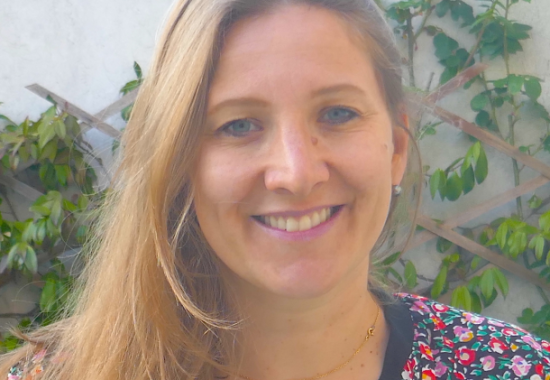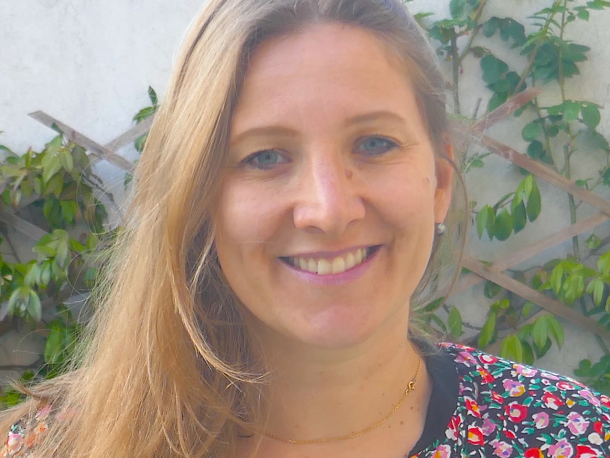Moss Rehabilitation Research Institute (MRRI) is proud to provide outstanding mentorship and an excellent training environment for postdoctoral fellows from the U.S. and around the world. Solene Kalenine, PhD, PsyD, is one former MRRI postdoc who has gone on to a successful independent research career. She trained at MRRI from 2009 to 2011 under the supervision of Laurel Buxbaum, PsyD. Dr. Kalenine shares more about her research and her career in this interview.
Can you tell us more about your current position and what you are doing now?
I am a researcher employed by the CNRS, the French National Center for Scientific Research. I work at SCALab in Lille (France), which is a research institute for Cognitive and Affective Sciences gathering professors from Lille University and researchers from the CNRS.
What are your research interests?
My main research interest concerns the relationships between the perception and representation of objects and actions. How do we perceive objects and how do the motor properties of objects influence the way they are processed and represented? How are our actions represented? Does action experience influence acquisition and retrieval of knowledge about objects (name, category, function)? How can action and semantics benefit from each other, especially when one domain is impaired (such as in apraxia, semantic dementia)? As such, my interests encompass several main research areas of cognition, including visual perception, action, and semantic knowledge.
Can you tell us more about the impacts or potential impacts of your research?
I believe that studying the interconnections between different cognitive functions is really important for rehabilitation and lifespan development. Acquisition/rehabilitation in a particular cognitive domain may be boosted by more developed/preserved cognitive abilities. For example, we have identified that patients with semantic dementia tend to show relatively preserved semantic processing when the semantic knowledge involved is more closely linked to action. We are also investigating how enhancing object motor properties may help children learn new words.
What attracted you to science and the field of cognitive psychology?
In school, I was very attracted to “hard” science on the one hand and humanities on the other hand. For me, cognitive psychology is the perfect combination of both: a very rigorous and scientific approach to studying human mind and behavior.
Why did you choose to work as a postdoctoral fellow at MRRI?
I did my PhD thesis on the development of semantic categories, and I was getting more and more interested in the role of sensorimotor experience in conceptual knowledge. Therefore, I wanted to develop my expertise in the research field of action. Moreover, I had lost contact with my clinical background (I had a PsyD in neuropsychology before my doing my PhD) and hoped to reconcile fundamental and clinical research in my work. The Cognition and Action Laboratory at MRRI was thus the ideal fit for me.
What was it like working in the Cognition and Action Laboratory at MRRI?
People were very nice and welcoming. There were many interactions between us, and the environment was highly stimulating. In particular, I appreciated the regular meetings and seminars where I had the opportunity to learn a lot from expert researchers and clinicians.
Is there something you learned at MRRI that has helped you in your current endeavors?
I learned many things! I think MMRI is a great place to comprehend the whole spectrum of scientific research in cognitive psychology, from theoretical models to clinical rehabilitation. At MRRI, I was encouraged to get an overview first before starting to investigate a new research issue. I also learned to replace the word “problem” with the word “challenge”, and this change in perspective actually makes a major difference in my life!
What is one of your favorite memories from your time working at MRRI?
I really appreciated the scientific exchanges during the different meetings I had the opportunity to attend. I particularly remember amazing clinical seminars during which a neurologist presented the case of a patient, demonstrating their difficulties and preserved abilities and explaining the cognitive processes involved in front a mixed audience composed of clinicians, researchers, and members of the patient’s family.
Can you tell us more about your long-term career plans or goals?
I wish to continue doing research in cognitive psychology for as long as I can! And hopefully, I will be able to return to the U.S. and more particularly to MRRI at some point of my career as a visiting scholar. I am keeping an eye out for grants that could support this kind of travel opportunity. 😉
What are some of your personal interests or hobbies?
I come from the Alps so I definitely like hiking and outdoor activities. I also love traveling and discovering new countries and cultures. In addition, I enjoy reading, live music, and playing the piano when I have time.



2 comment on “Catching Up with Former MRRI Postdoc Solene Kalenine, PhD, PsyD”